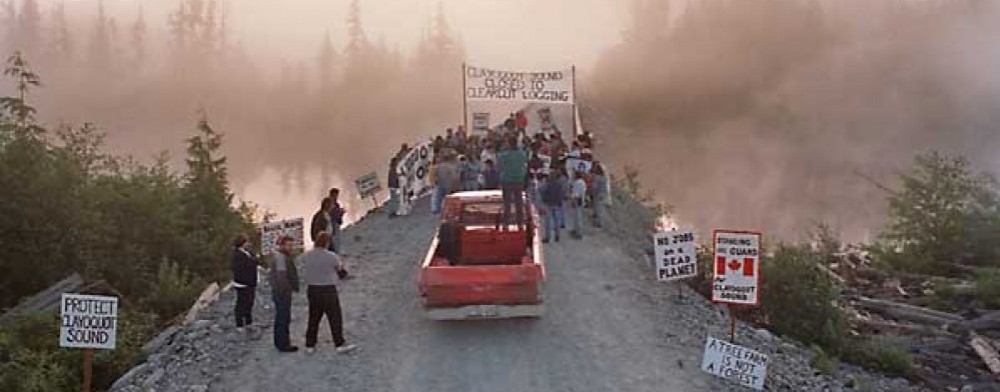3:2.
Question #5.
The question that I have selected for this week’s blog assignment asks us to examine parallels between King’s writing style in Green Grass Running Water, and Robinson’s in “Coyote makes a deal with the King of England.” I find the similarity in narrative voice most evident in comparing the Coyote narrative thread in King’s novel to Robinson’s story. The non-linear, disjunctive and tangential style employed in King’s coyote sequence echoes that of Robinson’s narrative style. In both texts, the disjointed and slightly ambling narrative style mimics the peaks and valleys of conversation. I find that both of these texts reproduce, in a sense, the complexly shifting terrain of verbal communication. Both texts seem to mirror the pauses inherent in conversation, as well as the shifts in emphasis, the ungrammaticality, and the creative re-framing of words that happens in a conversation. The semantic play and the elisions in meaning that are present in both texts, seem to gesture to a communicative space beyond language itself. As a reader, we may not wholly follow Robinson’s narrative, or we may find ourselves getting lost in King’s verbal play and digressions. In a sense, we are brought to the limits of language itself. The pauses, and gaps in meaning, (which I find are also represented visually in the way in which the texts are arranged sporadically on the page) gesture perhaps to the extra-lingual, the multiple forms of communication that are present when we engage in conversation with one another. Both the coyote narrative in King’s story, and Robinson’s “Coyote Makes a deal with the King of England” invoke both the authority as well as the slipperiness of language. This makes me think of a phrase that struck me when I was reading Robinson’s story: “But that’s going to be your word from now ’til the end of the word” (72). I feel that this play upon “word” and “world,” gestures to an understanding of language as ‘giving shape to our world.’ But simultaneously, when considered in light of what I have proposed about Robinson’s story- the way which the writing style both affirms and denies the supremacy of language- I think this verbal play can also be read as ironically tongue-in-cheek. What lies beyond the “end of the word?” I find that both King and Robinson’s texts, which suggest a confluence of oral tradition, literary tradition, and the everyday speech of conversation, are actively implicated in investigating this space beyond the “end of the word.” Both King and Robinson both invoke the ‘word’, in its ‘world shaping powers,’ as well as paradoxically gesture to its limitations, and to those ways of knowing which reside beyond language.
Works cited
King, Thomas. Green Grass Running Water. Toronto: Harper Collins, 1993. Print.
Robinson, Harry. “Coyote Makes a Deal with the King Of England.” Living by Stories: a Journey of Landscape and Memory. Ed. Wendy Wickwire. Vancouver: Talonbooks, 2005. 64-85.


Hi Laura,
I liked how you have linked these narrative styles to mimicking aspects of conversation – which of course bears some relation to the notion of orality. I find that King and Robinson’s use of language in telling Coyote stories is also a way of reflecting the sort of carnivalesque aspects of Coyote’s behaviour and the kind of upheaval that might characterize trickster stories in the first place. The language play contributes to the sense of irony that threads through these works.
Thanks for saying so well!
Heidi